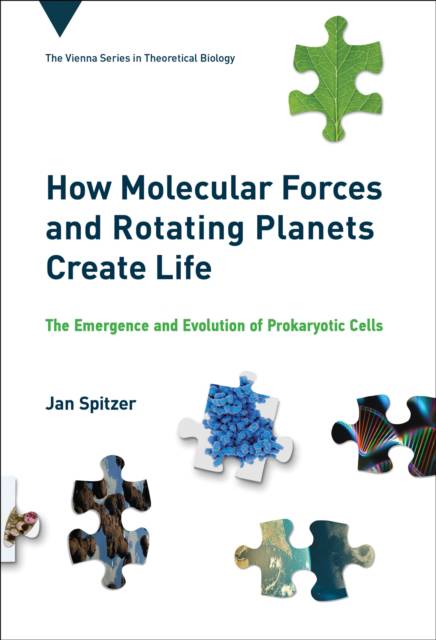
- Retrait gratuit dans votre magasin Club
- 7.000.000 titres dans notre catalogue
- Payer en toute sécurité
- Toujours un magasin près de chez vous
- Retrait gratuit dans votre magasin Club
- 7.000.0000 titres dans notre catalogue
- Payer en toute sécurité
- Toujours un magasin près de chez vous
How Molecular Forces and Rotating Planets Create Life
The Emergence and Evolution of Prokaryotic Cells
Jan Spitzer
88,95 €
+ 177 points
Description
A reconceptualization of origins research that exploits a modern understanding of non-covalent molecular forces that stabilize living prokaryotic cells. Scientific research into the origins of life remains exploratory and speculative. Science has no definitive answer to the biggest questions--"What is life?" and "How did life begin on earth?" In this book, Jan Spitzer reconceptualizes origins research by exploiting a modern understanding of non-covalent molecular forces and covalent bond formation--a physicochemical approach propounded originally by Linus Pauling and Max Delbrück. Spitzer develops the Pauling-Delbrück premise as a physicochemical jigsaw puzzle that identifies key stages in life's emergence, from the formation of first oceans, tidal sediments, and proto-biofilms to progenotes, proto-cells and the first cellular organisms.
Spécifications
Parties prenantes
- Auteur(s) :
- Editeur:
Contenu
- Nombre de pages :
- 248
- Langue:
- Anglais
- Collection :
Caractéristiques
- EAN:
- 9780262045575
- Date de parution :
- 09-02-21
- Format:
- Livre relié
- Format numérique:
- Genaaid
- Dimensions :
- 155 mm x 231 mm
- Poids :
- 557 g

Les avis
Nous publions uniquement les avis qui respectent les conditions requises. Consultez nos conditions pour les avis.






